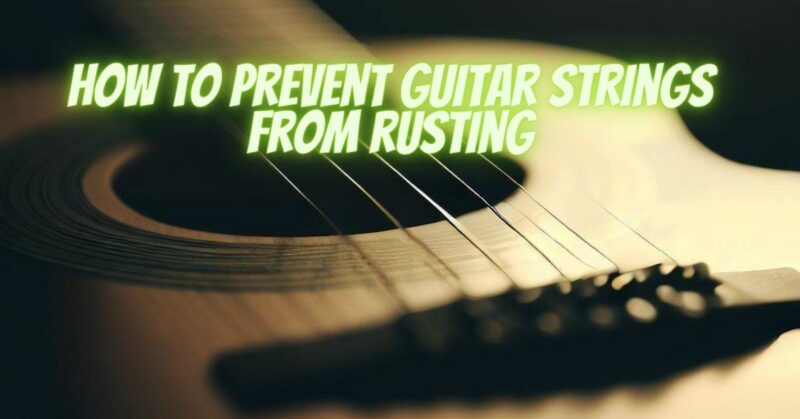Rust can be a persistent issue for guitarists, compromising the performance and lifespan of guitar strings. Fortunately, there are several proactive steps you can take to prevent rust and preserve the quality of your strings. In this article, we will explore effective strategies to help you prevent guitar strings from rusting and maintain their playability and longevity.
- Keep Your Hands Clean: One of the main contributors to string rust is the accumulation of oils, sweat, and dirt from your hands. To minimize this buildup:
a. Wash your hands thoroughly before playing the guitar to remove any contaminants that can accelerate rust formation.
b. Consider using a hand sanitizer or alcohol-based wipe to further cleanse your hands and remove excess oils.
- Wipe Down Your Strings: After each playing session, make it a habit to wipe down your strings with a clean cloth. This simple practice helps remove sweat, dirt, and debris that can contribute to rust:
a. Run the cloth along each individual string, paying attention to both the top and bottom surfaces.
b. Be thorough in your cleaning, ensuring that you remove any residue that may have accumulated during playing.
- Use String Lubricant or Protectant: Applying a small amount of string lubricant or protectant can create a protective barrier on the strings, inhibiting rust formation:
a. String lubricants, such as graphite or silicone-based products, can reduce friction and prevent moisture from seeping into the metal.
b. Apply the lubricant sparingly along the length of the strings, and use a cloth to wipe off any excess.
- Store Your Guitar Properly: Proper storage is crucial in preventing rust formation on guitar strings:
a. Store your guitar in a case or gig bag when not in use to protect it from exposure to moisture, humidity, and dust.
b. Consider using a humidity control device or desiccant pack within the case to maintain an optimal humidity level, as excessive humidity can accelerate rusting.
- Control Humidity Levels: Maintaining appropriate humidity levels in your guitar’s environment is important for preventing rust:
a. Invest in a room or case humidifier or dehumidifier, depending on the climate in your area, to regulate humidity levels.
b. Aim for a humidity range between 40% and 60% to minimize the risk of rust formation.
- Consider Coated Strings: Coated strings have a protective layer that helps prevent moisture and debris from reaching the core metal, extending their lifespan and reducing the risk of rust. Consider using coated strings, such as those with polymer or nanoweb coatings.
Conclusion:
Preventing guitar string rust requires a combination of proactive measures and good maintenance habits. Keep your hands clean, wipe down your strings after playing, and apply string lubricant or protectant for added protection. Store your guitar properly and control humidity levels to minimize exposure to moisture. Consider using coated strings for enhanced rust resistance. By implementing these strategies, you can significantly prolong the life of your guitar strings, maintain their playability, and enjoy optimal sound quality for a longer period.


